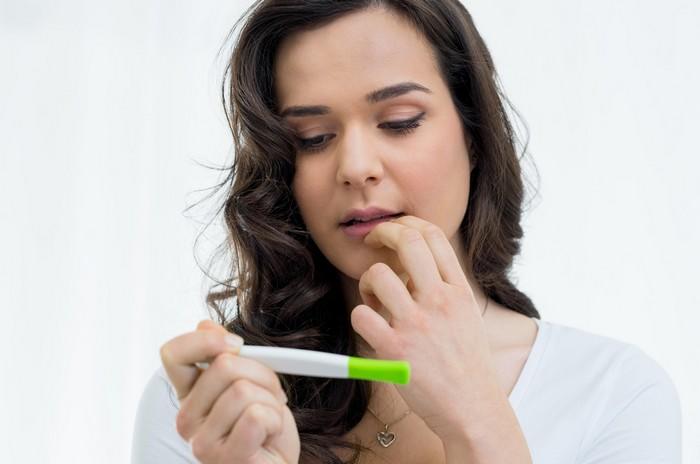Understanding ovulation is crucial for those trying to conceive or manage their reproductive health. Ovulation is the process where an ovary releases an egg. Knowing when this occurs can significantly impact fertility. This article will delve into the ovulation cycle, how to determine when ovulation occurs, and factors that can influence this process.
Understanding the Menstrual Cycle
The Phases of the Menstrual Cycle
The menstrual cycle is typically about 28 days long, but it can vary from 21 to 35 days in adults. This cycle is divided into several phases:
Menstrual Phase: This phase starts on the first day of menstruation and lasts about 3 to 7 days. During this time, the uterus sheds its lining.
Follicular Phase: After menstruation, the follicular phase begins. It overlaps with the menstrual phase and lasts until ovulation. During this phase, the body prepares for ovulation by developing follicles in the ovaries.
Ovulation Phase: This phase occurs when a mature egg is released from the ovary. Ovulation typically occurs around the middle of the cycle, approximately 14 days before the start of the next period.
Luteal Phase: After ovulation, the luteal phase begins and lasts about 14 days. The body prepares for a possible pregnancy during this time. If fertilization does not occur, hormone levels drop, leading to the start of menstruation.
When Does Ovulation Occur?
For most women with a regular 28-day cycle, ovulation usually occurs around day 14. This is counted from the first day of your period. However, the timing can vary based on individual cycle lengths. For example, if your cycle is 30 days long, ovulation may occur around day 16.
Calculating Your Ovulation Days
Track Your Cycle Length
To determine your ovulation day, it’s essential to track your menstrual cycle. Mark the first day of your period on a calendar. Count the total number of days until your next period begins. This will give you your cycle length.
Determine Ovulation Day
Once you know your cycle length, you can estimate your ovulation day. Subtract 14 days from the total length of your cycle. For example, if your cycle is 28 days long, ovulation likely occurs on day 14. If your cycle is longer, say 32 days, ovulation may occur around day 18.
Use Ovulation Predictor Kits
Ovulation predictor kits (OPKs) are helpful tools that can assist in predicting ovulation. These kits test hormone levels in your urine. A surge in luteinizing hormone (LH) indicates that ovulation is likely to occur within the next 12 to 36 hours. This method provides a more accurate prediction than simply calculating based on cycle length.
Monitor Physical Signs of Ovulation
Several physical signs can help indicate that ovulation is approaching. These include:
Cervical Mucus Changes: As ovulation approaches, cervical mucus becomes clear, stretchy, and slippery, similar to egg whites. This change helps sperm travel more easily to meet the egg.
Basal Body Temperature: Tracking your basal body temperature can help identify when ovulation occurs. After ovulation, body temperature rises slightly due to hormonal changes. A sustained increase in temperature can indicate that ovulation has taken place.
Ovulation Pain: Some women experience mild pain or cramping on one side of the lower abdomen during ovulation. This discomfort, known as mittelschmerz, can serve as an indicator that ovulation is occurring.
Factors Influencing Ovulation
Cycle Irregularities
Not all women have a regular menstrual cycle. Factors such as stress, illness, hormonal imbalances, or significant weight changes can affect cycle length and timing of ovulation. Women with irregular cycles may find it more challenging to predict ovulation.
Age and Ovulation
Age plays a significant role in fertility and ovulation. As women age, hormone levels fluctuate, often leading to irregular cycles and changes in ovulation timing. Women in their late 30s and early 40s may notice these changes more prominently.
Health Conditions
Certain health conditions can impact ovulation. Conditions such as polycystic ovary syndrome (PCOS) and thyroid disorders can lead to irregular ovulation or anovulation (lack of ovulation). If you suspect an underlying health issue affecting your cycle, consult a healthcare provider.
Lifestyle Factors
Lifestyle choices can also influence ovulation. Factors such as smoking, excessive alcohol consumption, and poor diet can negatively impact reproductive health. Adopting a healthier lifestyle can help promote regular ovulation.
When to Seek Medical Advice
Understanding Infertility
If you have been trying to conceive for over a year without success, it may be time to consult a healthcare provider. Infertility is typically defined as the inability to conceive after 12 months of regular, unprotected intercourse.
Fertility Testing
A healthcare provider may recommend several tests to assess your fertility. This may include blood tests to measure hormone levels, pelvic ultrasounds, and possibly a semen analysis for your partner. These tests can help identify any underlying issues affecting ovulation and fertility.
Conclusion
Knowing how many days after your period you ovulate is essential for family planning and understanding your reproductive health. For women with a typical 28-day cycle, ovulation usually occurs around day 14. However, individual cycles can vary, and several factors can influence the timing of ovulation.
Tracking your cycle, recognizing physical signs, and using ovulation predictor kits can help determine your ovulation day more accurately. If you have concerns about your menstrual cycle or fertility, seeking advice from a healthcare provider is essential. Being informed about your ovulation can empower you to make choices that align with your reproductive goals.
Related topics:
























